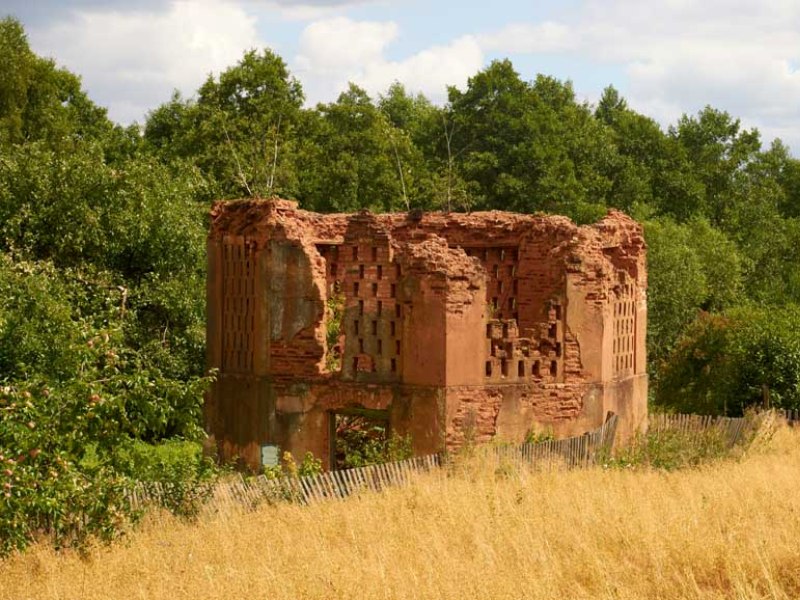Visitors can book a tour with a visit to the ruins and learn about the fate of the estate's owners, the development of architectural styles, and the characteristics of Baroque and Romantic gardens. A walk through the former estate grounds transports you to past centuries and offers a connection to Belarus' rich heritage.
History of the Estate
The history of the Holynka estate dates back to the 18th century, when a noble complex in the Baroque style was founded on an elevated river terrace. The estate was owned by the Wendorf family—an influential noble lineage that played an important role in local history. Later, through the female line, the estate passed to the Lozinski family, who retained ownership until 1939.
The estate had not only economic but also cultural significance. Eva Felińska—a renowned Polish writer and memoirist—spent her childhood here. She fondly recalled the cozy and inspiring Holynka, which became a symbol of carefree childhood for her. In the early 19th century, under the Wendorfs, a new larch house, chapel, utility and industrial buildings were constructed. At the same time, a significant stage of the park's improvement took place—gradually transforming from strict Baroque geometry into a Romantic landscape with ponds and decorative elements.
Architecture of the Manor and Park Complex
The architecture of the Holynka complex was rich and varied. The main manor house, built in 1802, had distinct features of Classicism. It was a single-story building on a stone foundation with a four-column Doric portico and a semicircular window in the pediment. The house faced west, featured clean lines, and had decorative elements in the form of vertical pilasters on the corners.
The park area was carefully planned: terraces covered with yellow sand were connected by symmetrical radial paths. Each terrace featured its own floral design, surrounded by shaped shrubs. The slope to the river was arranged on multiple levels. On the eastern side, in a natural forested area, a labyrinth was created—a typical Baroque element symbolizing mysticism and mystery.
In the early 19th century, the park began to take on a landscaped form. Two artificial ponds appeared, pyramidal junipers, lilac bushes, and roses were planted. Commemorative stones with inscriptions were installed—one of which read: “1802. This garden was established by Stanislaw and Ewa Wendorf.” Among the lost buildings was the “Imbar”—a two-story larch structure used to store alcoholic beverages on the lower floor and host balls in the upper hall. There were also barns, a distillery, a tower-shaped smokehouse, a spirit receiver, and other structures.
To this day, the foundations of the main buildings and ruins of the chapel remain.
Tours with a Visit to the Manor and Park Complex Fragments
The fragments of the Holynka estate are included in the itineraries of tours around Belarus, especially those focusing on manor architecture and landscape design. Here you can book a tour to explore the preserved foundations, the remains of utility buildings, and the chapel. A guided tour is especially interesting, providing stories about the Wendorf family, Eva Felińska, and the historical transformations of the estate.
This location is often part of tours from Minsk. Tourists can enjoy a leisurely walk through this historic site, where once balls were held and craftsmen worked. It’s a great opportunity not only to learn more about the manor culture of Belarus but also to immerse yourself in the romantic and tranquil atmosphere that Holynka offers its visitors.
